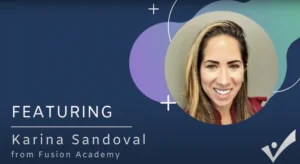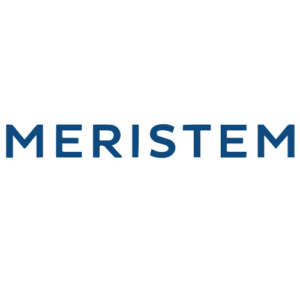Hakuna matata: ‘a wonderful phrase’ for students with ADHD
Have you ever felt defeated after working on a project that you just didn’t finish perfectly? I was recently working on an essay—I drafted it, proofed it, and submitted it for review—and was so excited that I finished it and so proud of what I had done. I knew I was going to get an A.
The result wasn’t what I’d expected. When the review came back, I was absolutely devastated—there were so many corrections and I hadn’t even answered the question posed in one section of the essay. I felt crushed. I didn’t want to write the essay again, but I persevered and submitted it for a second review. I told myself that if it wasn’t perfect, it wasn’t worth it. It came back with a bunch of corrections again and this time I wasn’t only crushed, I felt frozen. I couldn’t submit it as is. My professor was going to think I was an idiot—or so I thought. Instead of submitting the essay I gave up and shelved it. I wasn’t able to move forward.
No worries, no academic overwhelm

Later on, I mentioned what happened to a friend. She reminded me that sometimes things aren’t going to be perfect. Sometimes when we’re working on a project, we’ll get distracted or miss a piece of the puzzle. Sometimes it can take a little more effort to get where you’re going. She said that ‘giving up’ should never be in my vocabulary. Instead of giving up or becoming overwhelmed, she reminded me of the wisdom from Disney’s The Lion King!
I couldn’t imagine where she was going with that, but she started to sing: ‘Hakuna matata, what a wonderful phrase; hakuna matata ain’t no passing craze! It means no worries for the rest of your days. It’s our problem-free philosophy…’ She then went on to explain that coming down on yourself for things that don’t go the way you plan never helps anyone. Instead, doing this only holds you back from your dreams and destiny. She encouraged me to trade in perfection for hakuna matata.
Eliminating perfectionism takes the pressure off
It was like a light bulb went off in my head! I was putting too much pressure on myself. She reminded me that when I start to feel overwhelmed about things being perfect, that instead I need to say ‘no worries’ or ‘hakuna matata’ and let the pressure go so that I can put my eye back on the prize. It’s not the end of the world for things not to be perfect—sometimes a B is just as good as an A. My work doesn’t have to be perfect 100% of the time—I’m not even perfect 100% of the time, and that’s okay. I felt like I got my life back.
Communicating with my professor
I went to my professor and explained what happened. He encouraged me to submit what I had and to let him grade it to see what grade I would’ve received. It was an A-! He awarded me half credit for the assignment and encouraged me to not withhold work in the future because you never know how it will turn out. So, when things aren’t perfect, just say hakuna matata and keep striving toward your dream—you might just be surprised with the outcome!

Nicole’s approach to coaching is one of collaboration—she helps her students identify which areas they can grow in, teaches them actionable strategies for success, and cheers them on every step of the way. With a master’s in health & wellness and life coach certification, Nicole has been coaching students for seven years and loves to see her students thrive on their academic journey.

7 Trailblazing Celebrities and Icons Living & Thriving with ADHD
Explore the inspiring journeys of 7 influential individuals who have harnessed their ADHD to achieve greatness and make a lasting impact.

Unveiling the Complexities of ADHD: Insights from Dr. David Pomeroy
Unveiling the Complexities of ADHD: Insights from Dr. David Pomeroy https://youtu.be/EotABukIxlo Attention Deficit Hyperactivity Disorder (ADHD) is a multifaceted condition that impacts millions of lives

Navigating ADHD in Teens: Insights from MFT, Kelsey Thompson
Navigating ADHD in Teens: Insights from MFT, Kelsey Thompson https://youtu.be/omQndscdD5U In a recent interview with Kelsey Thompson, a seasoned Marriage and Family Therapist at The

Unlocking Potential: A Glimpse into Fusion Academy’s Personalized Education Model
Unlocking Potential: A Glimpse into Fusion Academy’s Personalized Education Model https://youtu.be/R7BgYW6A6k4 In the bustling world of education, where traditional models often struggle to meet the

Embracing Diversity: Navigating Support for Disabilities in Education
Accommodations in college and beyond come mainly from Section 504, which covers conditions as varied as anxiety and ulcerative colitis, ADHD and asthma, quadriplegia, and cancer. As more students qualify for disability accommodations and feel empowered to take them, long-stigmatized diagnoses have transformed into points of identification and affinity.

Sacramento Country Day School
A beautiful, expansive campus specifically developed to serve Pre-K through 12th grade students across our Lower, Middle, and High School. Small class sizes and a dynamic learning environment offer our students opportunities to discover and joyfully pursue their unique strengths.

Meristem
Meristem is a unique program dedicated to preparing neurodiverse young adults for a life of greater independence and fulfillment. We are located near Sacramento, California, on a 13-acre campus in Fair Oaks. Meristem students are young adults, between the ages of 18-28, who show the potential to achieve greater independence and self-sufficiency upon graduation. They often have aspirations for career and/or college, and are willing to discover and work towards their passions and goals. Space is currently available to live on-campus and gain independent living and social skills while attending our day program or pursuing college or employment goals. Ask about scholarships opportunities for families eligible for financial assistance.

